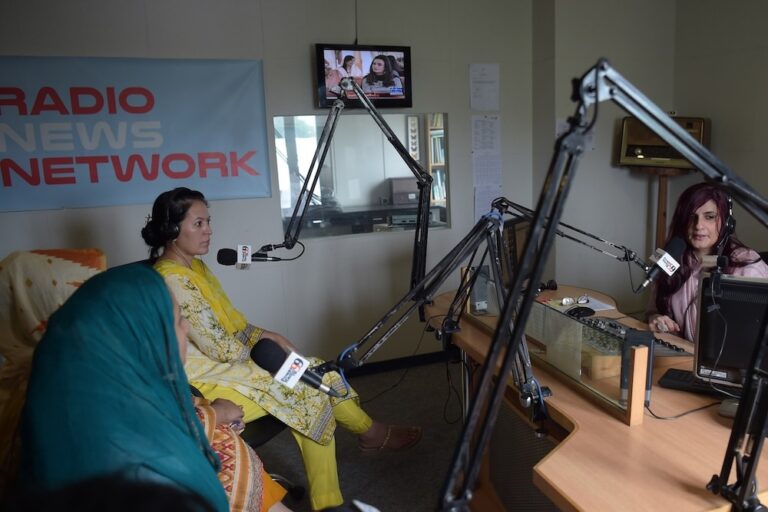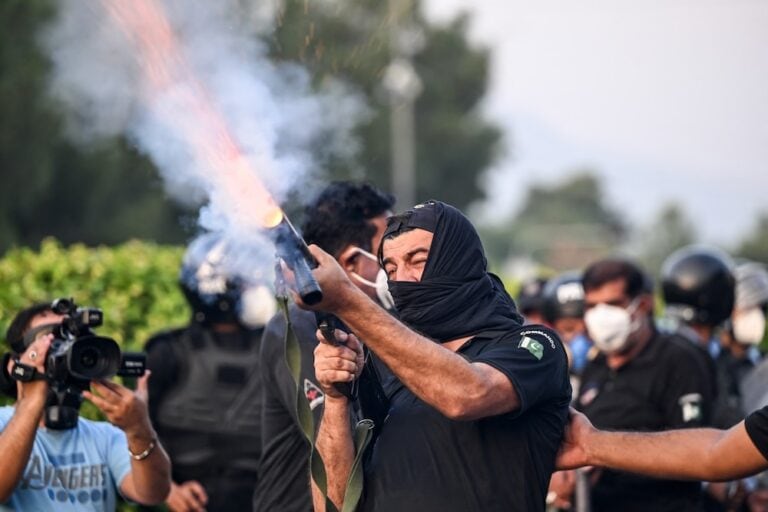The Pakistan Press Foundation reminded the broadcast media regulator to fulfill its mandate without muzzling free speech.
This statement was originally published on pakistanpressfoundation.org on 30 March 2023.
The Pakistan Press Foundation (PPF) welcomes the decision of a special bench of the Supreme Court to question a prohibition order issued by the Pakistan Electronic Media Regulatory Authority (PEMRA) prohibiting coverage of the conduct of judges. We urge PEMRA to take notice of the scathing response by the apex court bench that has called into question its decision to issue such an “unsolicited media-gagging order”.
It is a timely reminder for PEMRA to ensure that it serves its purpose as the broadcast media regulator without overstepping its mandate resulting in the muzzling of free speech.
While the special bench of the Supreme Court heard an unrelated suo motu case, the order, published on March 29, written by Justice Faiz Isa, included a strongly worded rejection of PEMRA’s ”gagging order” prohibiting coverage of the conduct of judges.
The Supreme Court order noted PEMRA’s order forbidding the telecast of anything against state institutions and prohibiting discussion on the conduct of sitting Supreme Court or High Court judges.
On March 9, PEMRA prohibited the broadcast or rebroadcast of any content regarding the content of sitting Supreme Court or High Court judges.
The court stated that the Constitution guaranteed the fundamental right to freedom of speech and expression and the freedom of the press, adding that if “legitimate criticism” of judges was restricted, it would serve neither the interests of the judiciary nor the public.
“Prohibiting the broadcast/rebroadcast of any content pertaining to [the] conduct of Judges of the High Court and the Supreme Court is inexplicable. It is not disclosed why PEMRA issued this gagging order,” the order stated.
The order stated that the PEMRA chairman alone did not constitute the regulatory body and cited the laws establishing authority, which said that all orders taken by PEMRA “shall be taken in writing and shall identify the determination of the Chairman and each member separately”.
The court order stated that PEMRA’s prohibition order did not disclose if any of the members had a say or even if a meeting had taken place. “This lack of disclosure by a statutory-regulatory body is of concern,” the SC order added.
As per the apex court, PEMRA’s order “purports to rely” on a Supreme Court judgement “to justify its issuance”. The top court stated that the referenced judgement “neither directed PEMRA to issue this type of gagging order nor did it suggest this”.
The court added that the prohibition order pertained to superior court judges’ conduct being discussed even though district and sessions judiciaries were “more vulnerable”.
“PEMRA’s unsolicited media-gagging order brings the Judiciary into disrespect and disrepute as citizens will assume that it has been issued on the direction of Judges, with a view to cover discrepancies, illegalities and blemishes.
“Throttling the media violates the Constitution and is unacceptable,” the order stated.
The Supreme Court said that PEMRA’s prohibition order had disregarded and violated the fundamental rights of freedom of speech, expression and the media.
“Fundamental rights must remain inviolate, and when they are attacked, the courts have to safeguard them,” the court added.
The court said it was “compelled” to remind PEMRA that, among other things, the media regulatory body was set up “to ensure accountability, transparency and good governance by optimising the free flow of information.”
The SC stated that PEMRA’s prohibition order “does the very opposite” of this “by imposing absolute censorship and threatening violators with punitive action. Stopping the free flow of information prevents accountability, transparency and good governance”.



